Examples
These are some example games created using the FlexibleRules framework.
Awele
Awele (also known as Oware) is an abstract strategy game and is the variant of mancala most widely considered suitable
for serious adult competition. Oware is the national game of Ghana, and the particular name "Oware"
is that given by the Akan speaking people there.
(See Wikipedia, Oware, http://en.wikipedia.org/wiki/Oware (as of Mar. 24, 2009, 13:41 GMT)).
Try it!
|
Click on the Launch button to launch the game from your browser (requires Java)
|
 |
|
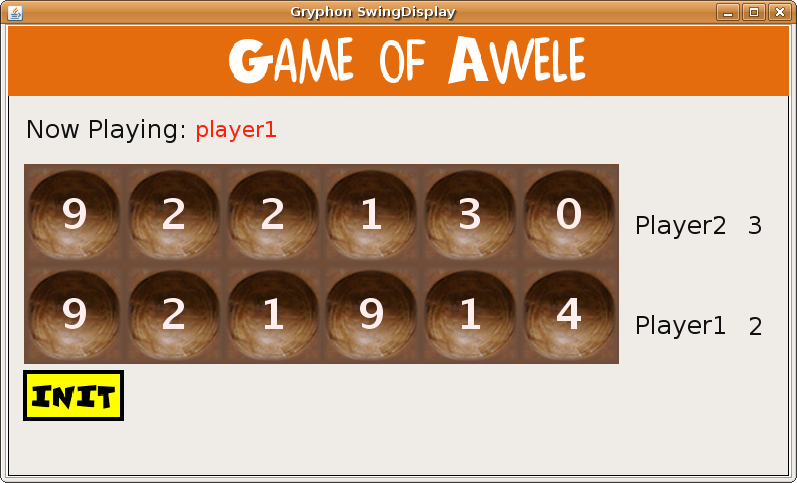
|
Go
Go is a strategic board game for two players. Go is noted for being rich in strategic complexity despite its simple rules.
(...)
Go is played by two players who alternately place black and white stones (playing pieces, usually made of glass or plastic) on the vacant intersections of a grid of 19x19 lines. The object of the game is to control a larger portion of the board than the opponent. A stone or a group of stones is captured and removed if it has no empty adjacent intersections, the result of being completely surrounded by stones of the opposing color.
(See Wikipedia, Go (game), http://en.wikipedia.org/wiki/Go_(game) (as of Mar. 24, 2009, 13:46 GMT)).
Try it!
|
Click on the Launch button to launch the game from your browser (requires Java)
|
 |
|
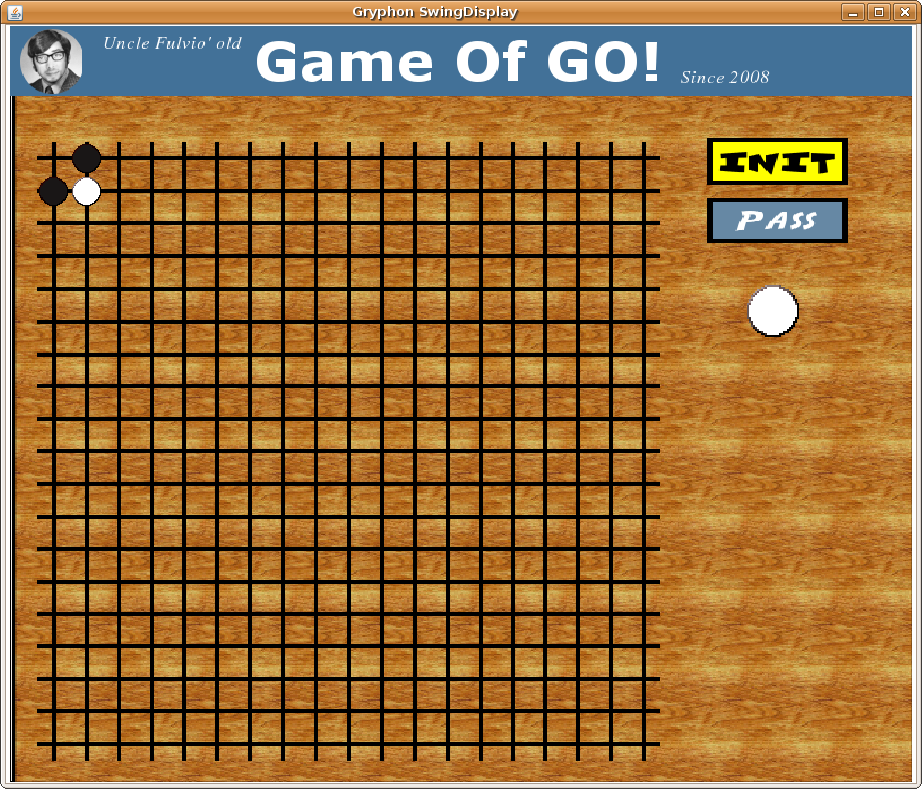
|
Tic Tac Toe
Tic-tac-toe, also spelled tick tack toe, and alternatively called noughts and crosses, hugs and kisses, and many other names, is a pencil-and-paper game for two players, O and X, who take turns marking the spaces in a 3x3 grid, usually X going first. The player who succeeds in placing three respective marks in a horizontal, vertical or diagonal row wins the game.
See Wikipedia, Tic-tac-toe, http://en.wikipedia.org/wiki/Tic-tac-toe (as of Mar. 24, 2009, 13:50 GMT).
Try it!
|
Click on the Launch button to launch the game from your browser (requires Java)
|
 |
|
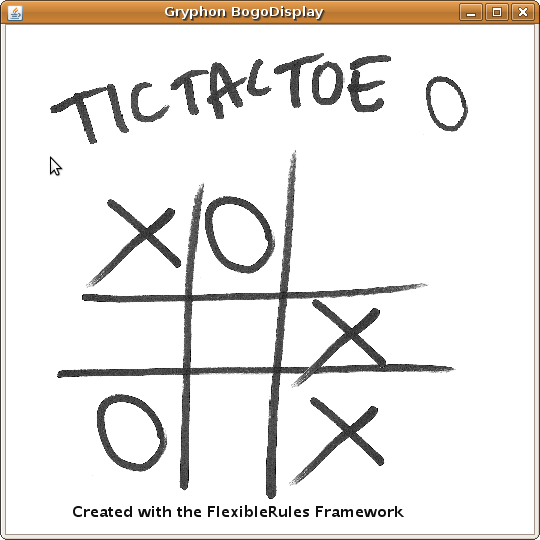
|
Himalaya
Himalaya™ is a board game for 3 or 4 players. The goal is to gain commercial, political and religious power
on a region of Himalaya.
Players choose their moves at the beginning of each turn, in order to move from town to town or to get resources.
Players' actions are then sequentially executed.
Gameplay is divided between a shared main screen, where public interaction takes place, and a private screen, where
each player chooses its moves and receives feedback from the game.
|
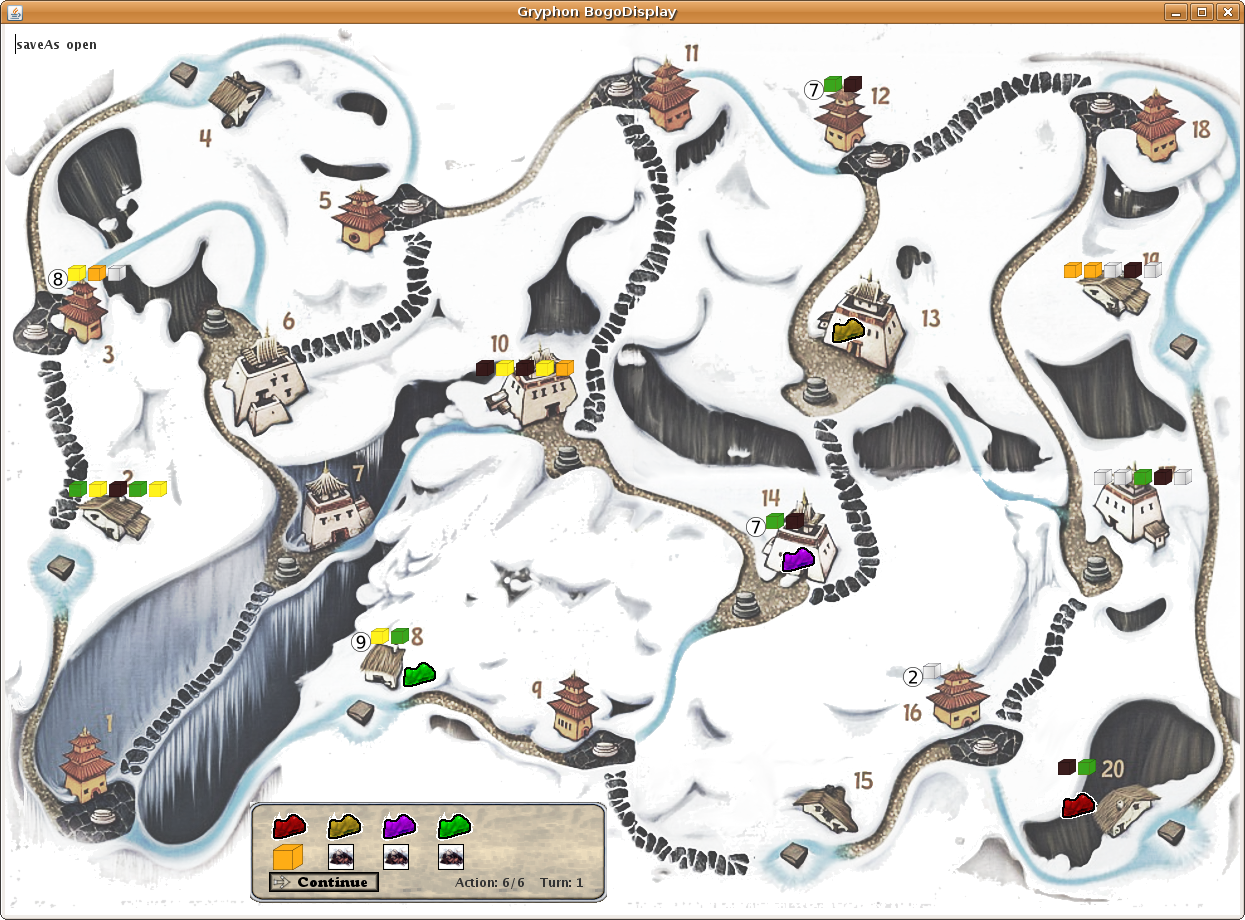
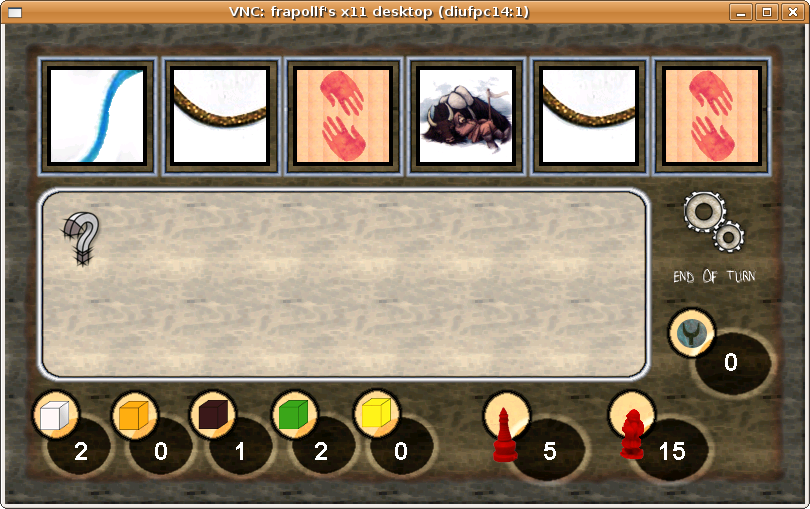
|
Un mouton à la mer
Un mouton à la mer™ is a card game for 3 to 6 players. Players are dealt their hand of 12 from a deck of 1-60 (the remainder go back in the box for the whole game), and then lay out marker cards that show the other players the strength of their hand. Another scoring deck of 24 has values of 1-12; two cards from this deck are laid face up. Players choose one card from their hand in secret and show them together. The highest value played takes the lowest scoring card, which goes face-up to a pile in front of you. The second highest takes the other card likewise. Remaining cards are discounted. Then look at everyone's face-up deck, the highest scoring player turns one of his or her marker cards over! (The original game had cockatoos becoming cuckoos; this edition is themed on lifesavers). At the end of a round, players score according to their markers cards that they managed to save (cockatoos or life-savers).
There is a further twist! Players then pick up all their playing hand, and pass it clockwise. So as each round commences, you are using the cards previously used by your neighbor! Are you smarter? Can you make a better fist of the same hand your neighbor had? Play out rounds till all players have had each hand, top score wins.
|
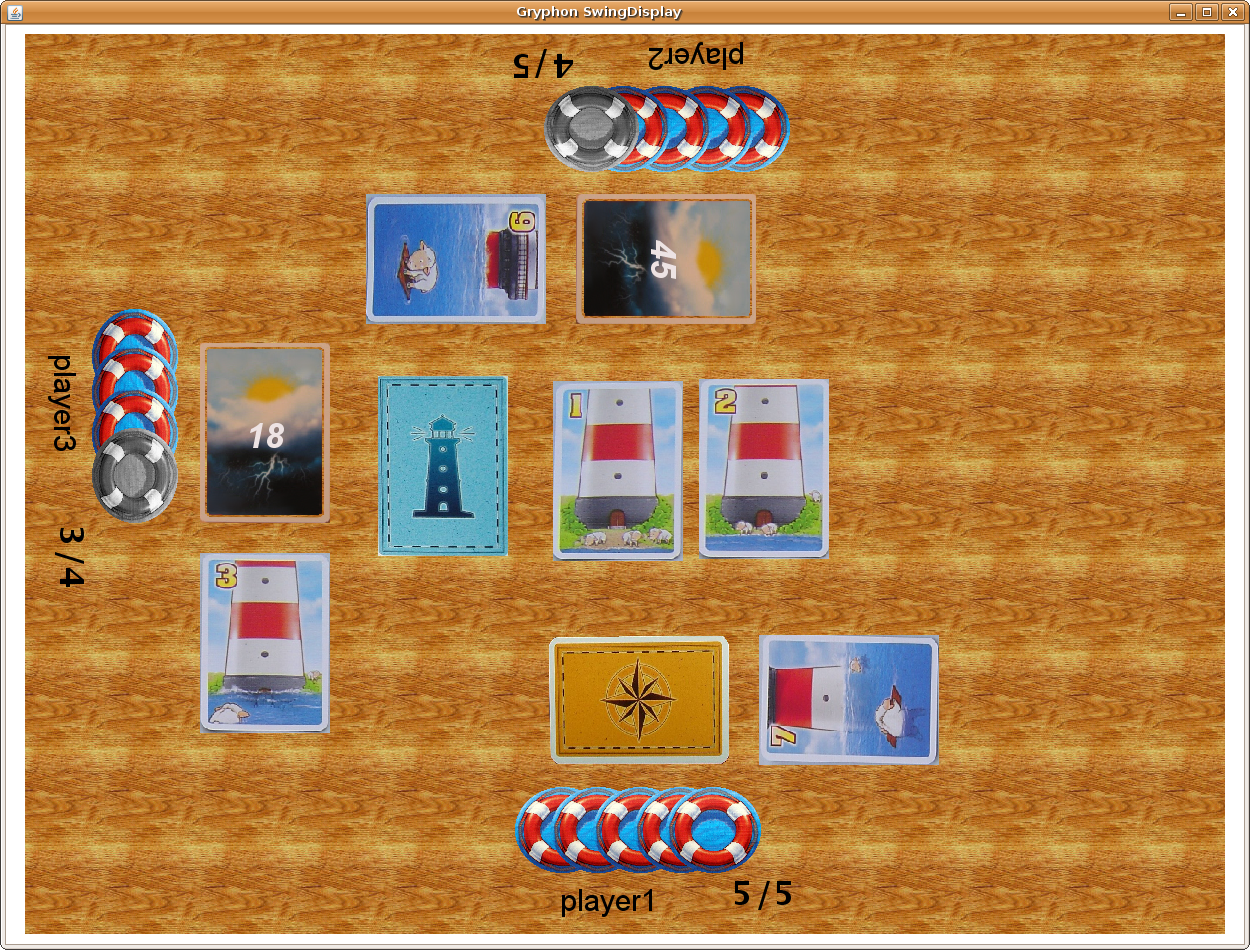
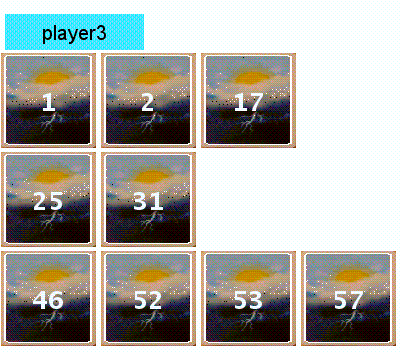
|
Connect4
Connect Four (also known as Plot Four, Find Four, Four in a Row, and Four in a Line) is a two-player game in which the players take turns in dropping alternating colored discs into a seven-column, six-row vertically-suspended grid. The object of the game is to connect four singly-colored discs in a row - vertically, horizontally, or diagonally - before your opponent can do likewise.
(See Wikipedia, Connect Four, http://en.wikipedia.org/wiki/Connect_Four (as of Apr. 21, 2009, 15:44 GMT)).
Try it!
|
Click on the Launch button to launch the game from your browser (requires Java)
|
 |
|
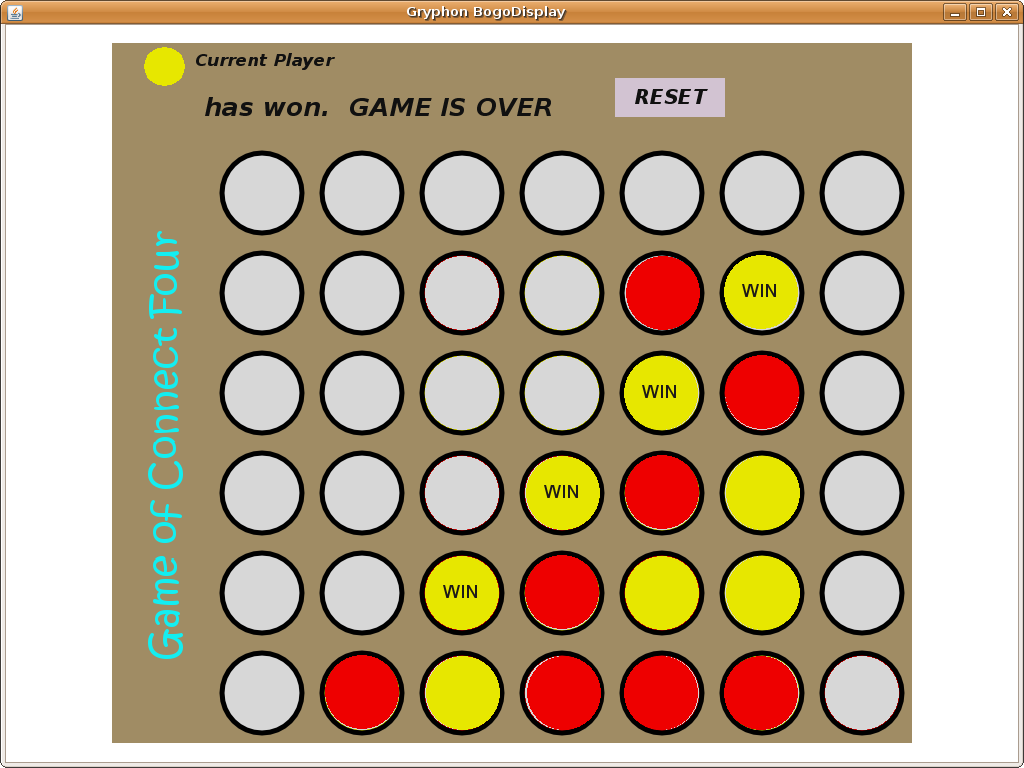
|
Contact:
Fulvio Frapolli (
fulvio . frapolli //at// gmail . com),
Amos Brocco (
amos . brocco //at// gmail . com)
* Remove spaces and replace //at// with @





